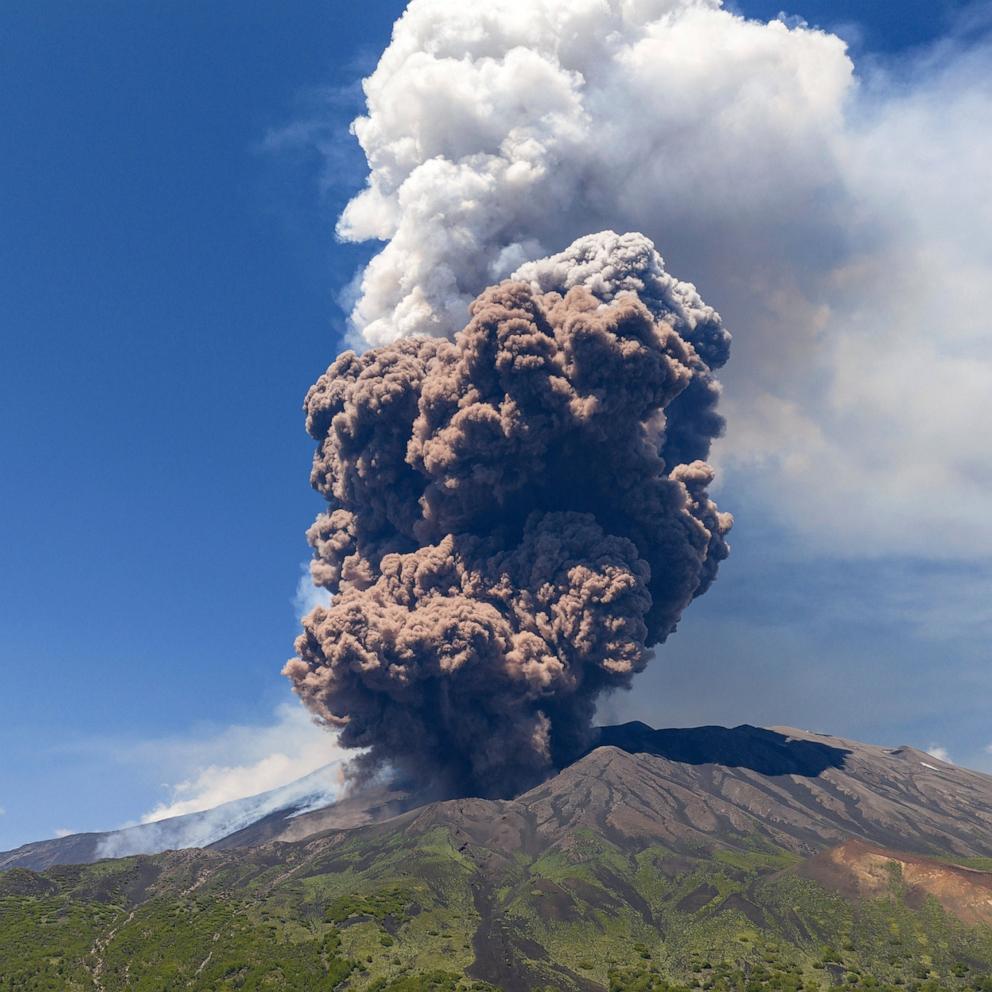Israel strikes dozens of targets in Iran, including nuclear program: IDF
Israel launched a series of strikes against Iran that included dozens of military targets, including the country's nuclear program, according to the Israel Defense Forces.
The IDF said the operation, titled "Rising Lion," comes after intelligence identified that Iran has "significantly advanced towards obtaining a nuclear weapon," alleging this capability would allow them to act against Israel.
Israel estimates Iran now has enough enriched material for several nuclear bombs, the IDF and an Israeli official familiar with the operation told ABC News. It is unclear if the U.S. government has made the same determination.
Iran's Natanz enrichment site has been impacted by Israeli attacks, however, there are no elevated radiation levels, Iranian officials confirmed to the International Atomic Energy Agency. The Esfahan and Fordow sites have not been impacted, the IAEA said.
"The IAEA has consistently underlined that 'armed attacks on nuclear facilities could result in radioactive releases with grave consequences within and beyond the boundaries of the State which has been attacked,'" IAEA Director General Rafael Mariano Grossi said in a statement Friday, citing a general conference resolution.

Iran has confirmed the deaths of the top general of Iran's Revolutionary Guard as well as several top scientists, according to the general staff of the armed forces of the Islamic Republic of Iran. Hossein Salami, the IRGC commander-in-chief; Gholamali Rashid, deputy chief of the general staff of the armed forces; Dr. Mohammad Mehdi Tehranchi, physicist and president of Islamic Azad University; and nuclear scientist Dr. Fereydoun Abbasi; were all killed in the attack, Iran said.
Ali Shamkhani, a member of the Expediency Discernment Council of Iran, was seriously injured but is still alive and the status of Dr. Abdolhamid Minouchehr, the head of nuclear engineering at Iran's Shahid Beheshti University, is yet to be confirmed, Iran said.
Israel Defense Minister Israel Katz described the strikes as "preemptive" and declared a state of emergency.
"Following the State of Israel's preemptive strike against Iran, a missile and drone attack against the State of Israel and its civilian population is expected in the immediate future," Katz said in a statement.
Air raid sirens sounded in Tel Aviv following the announcement.

Israel said Iran launched about 100 drones toward Israeli territory that it was "working to intercept."
Iran's Supreme Leader Ayatollah Ali Khamenei Friday morning said Isreal "should anticipate a severe punishment."
Israel has "committed a crime in our dear country today…. [and] "[we] won't let them go unpunished," Khamenei said. "With this crime, the Zionist regime has prepared for itself a bitter, painful fate which it will definitely see."
Iran also announced it will not participate in nuclear negotiations with the U.S. on Sunday.
US not militarily involved in Israel's strikes, officials say
The U.S. did not provide any assistance or have any involvement in the Israeli strike, two U.S. officials told ABC News.

The U.S. did not play a military role in Israel's attack on Iran as Secretary of State Marco Rubio confirmed, but it provided "exquisite" intel and will help defend Israel if needed -- especially against ballistic missiles that are expected to be launched from Iran, a U.S source familiar with the intel on the strike told ABC News Friday.
The U.S. did have advance notice of the strikes and they will continue and be very intense over the next few days, the source said.
Speaker of the House Mike Johnson issued a warning to Iran on Friday, saying it will face grave consequences if it targets U.S. interests.
"Israel and the United States have been united, including in our shared insistence that Iran must never obtain a nuclear weapon. President Trump and his Administration have worked tirelessly to ensure that outcome. Unfortunately, Iran has refused to agree and even declared yesterday its intent to build a new enrichment facility," Johnson said in a statement.
"Israel decided it needed to take action to defend itself. They were clearly within their right to do so," Johnson said.

On Thursday, Sec. of State Marco Rubio released a statement following the strike, saying, "Tonight, Israel took unilateral action against Iran. We are not involved in strikes against Iran and our top priority is protecting American forces in the region."
Rubio said the U.S. was advised by Israel that "they believe this action was necessary for its self-defense."
"President Trump and the Administration have taken all necessary steps to protect our forces and remain in close contact with our regional partners. Let me be clear: Iran should not target U.S. interests or personnel," Rubio said.
Why Israel says they preemptively attacked Iran
In a video message on Thursday, Israeli Prime Minister Benjamin Netanyahu said his country had no choice but to stage a preemptive strike on Iran's nuclear program.
"In recent months, Iran has taken steps that it has never taken before, steps to weaponize this enriched uranium, and if not stopped, Iran could produce a nuclear weapon in a very short time," he said. "It could be a year. It could be within a few months, less than a year. This is a clear and present danger to Israel's very survival," he said.
The strikes come as the U.S. has planned nuclear talks with Iranian officials this weekend.

Before the strike, President Donald Trump spoke of the negotiations on Thursday, saying in a social media post, "We remain committed to a Diplomatic Resolution to the Iran Nuclear Issue! My entire Administration has been directed to negotiate with Iran. They could be a Great Country, but they first must completely give up hopes of obtaining a Nuclear Weapon."
Iranian President Masoud Pezeshkian said Thursday, before the strike, his country will continue to enrich uranium and vowed to rebuild facilities should they be destroyed, as tensions in the Middle East have escalated.
"We will go our own way, and we will have the enrichment," Pezeshkian said during remarks in Ilam, a western province of Iran.
"We will build this country with these very young people. It's not like if, for example, someone bombs our place, that's the end of it. All this is in mind. Whatever they do, we will rebuild," Pezeshkian added.
U.S. Defense Secretary Pete Hegseth was asked about the possible military action during a House Armed Services Committee hearing on Thursday.
"What I know is that Bibi Netanyahu is going to put his country first, and we're going to put our country first, and we're positioned properly in the region ... for any potential contingency," Hegseth said of Israel's prime minister.
Hegseth added that the U.S. and President Donald Trump remain "committed to creating the conditions for peace."
ABC News' Shannon K. Kingston and Othon Leyva contributed to this report.




